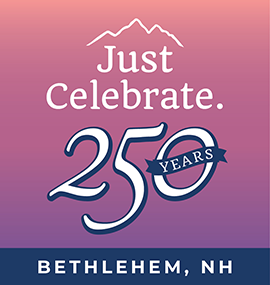Bethlehem Transfer Station Committee
Bethlehem, NH
Minutes of the Meeting
March 31, 2020
Note: Virtual Meeting via Zoom.
Committee members participating: Nancy Strand (host), Barry Zitser, Julie Seely (no video), Katherine Darges (no video), Chris Jensen (no outgoing video)
The meeting was called to order at 6:35 PM.
The minutes of the 16 February 2020 meeting were discussed briefly, then were approved with the change of correcting “North Country Counsel” to “North Country Council”.
On 6 March 2020 Barry Zitser and Nancy Strand met with the North Country Council (NCC) CEO, Planner, and financial expert to discuss getting help from or, perhaps, teaming with the Council for grants for recycling, and working toward zero waste initiatives. Barry explained Bethlehem’s current situation regarding trash removal and the desirability of having a contingency plan in the event of a premature closing of the Bethlehem landfill. He also told them about what Bethlehem’s likely needs are for going forward regarding trash removal and recycling. [Nancy will send a copy of the notes from the NCC meeting to Transfer Station Committee (TSC) members.]
The NCC members explained what support the Council might be able to provide regarding help with grant proposals and applications, and general advice and support. They suggested that TSC should: develop a short-term plan for a transfer station if the North Country Environmental Services (NCES) station closes that can be modified for long-term use; and develop a feasibility plan for a transfer station. They explained that some grants are based on per capita income for the town.
If Bethlehem hires a consulting company to do the plan, the TSC would need to put out a request for quote (RFQ) to get bids and qualifications from prospective consultants from which the Bethlehem Board of Selectmen could choose.
The group discussed NH State Bill 1319, which could have bearing on what may affect a Bethlehem transfer station in the future. The bill was passed by the New Hampshire House of Representatives in 2019 and will be considered by the New Hampshire Senate in its 2020 session. It states, in part, “XV. No permit shall be issued by the department for the siting of a new public or private facility or for the expansion of an existing public or private facility which is within one mile of the boundary of any state or national park or within 5 miles of the boundary of any land managed by the United States Department of Agriculture Forest Service.”
TSC members discussed various resources and next steps that may be helpful if Bethlehem sets up its own trash and solid waste removal system.
- Pemi-Baker Solid Waste District – Cost of dues for membership is calculated by a formula derived from the number of tons of municipal solid waste generated and the population of a town. They would sponsor two “hazardous waste disposal days” and two “fluorescent light disposal days “per year.
- Tim Wennrich, owner of Meadowstone Farm, may take food waste for compost. Nancy will call him again to get more information.
- Agracycle in Maine may take Bethlehem’s food waste.
- Bethlehem may be able to get Community Development Block Grants (CBDG) for recycling and landfill development programs. Shelly Hatfield is the contact.
- Kevin McKinnon is a master in transfer stations.
- The Northern Border Regional Commission is not a viable resource for Bethlehem. The town is not “distressed” enough to qualify for a grant.
- Barry will call NCC to ask more questions.
Previously, Brian Patnoe, manager of the transfer station in Littleton, gave prices for Littleton to allow Bethlehem to use the facility. Chris Jensen obtained some cost estimates from Mr. Patnoe if Bethlehem were to use the Littleton Transfer Station, in lieu of Bethlehem having its own Transfer Station. There would be the need for a $75,000 to $100,000 capital investment from Bethlehem to facilitate the extra solid waste from Bethlehem. There would be an additional annual assessment of $25 to $35 per capita from Bethlehem. Finally, Bethlehem residents would have out-of-pocket costs for purchasing Littleton Pay-As-You-Throw bags. Littleton has a robust recycling program, but does not accept food waste.
In his earlier meeting with the Committee, Mr. Patnoe suggested that Bethlehem might consider having its own transfer station and use the facility in Littleton for recycling only. This might be more cost efficient.
Chris Jensen heard from Mt. Carberry that they would allow Bethlehem to haul its municipal solid waste (MSW) there. [They were not able commit to taking our MSW until the need was more eminent.] The cost to do this will be determined at a later date. Current cost is $57 per ton.
Committee members discussed NCES’ new application with the New Hampshire Department of Environmental Services for a permit to open Stage 6 of the Bethlehem landfill. The permit should require only a quick review since it is very similar to the application that NCES withdrew a few months ago. Within four to six months of the recent submission the application should be publicly reviewed.
After the determination is made about opening Stage 6, the TSC will know if it is likely that the Bethlehem transfer station will close in 2021. If the permit is approved, then the transfer station will have a longer life. This will give the TSC a longer time to plan for the closing that eventually will come.
Meanwhile, the TSC should move forward on contingency plans for handling Bethlehem’s MSW, recycling, and food waste. The town should have a short-term contingency plan to bridge the gap between the current contract with NCES and a permanent solution, ideally one that could be an expansion of the contingency plan.
Barry agrees with Julie Seely that Stage 6 probably will be approved, but if we still don’t have a ruling on that, by Autumn, we should make a comprehensive plan for at least a short-term solution for trash removal.
The Committee has learned that the permit the town once had for the Route 116 transfer station that was open between 2009 and 2011 expired. To re-open Bethlehem can get a “Permit by Notification” in approximately 60 days from making the request to the DES. There is no cost for it. Barry suggested that we start the application process three to four months before we might need it.
Barry commented that James Steele at NCC thinks that the town might be best served by using the Town Garage as a temporary transfer station.
TSC members discussed the Forest Lake land in Dalton that Casella is trying to purchase as a landfill site may be within the two-mile limit or five-mile limit as stated in NH State Bill 1319.
Chris spoke with Brett at the town garage about using part of that property for a transfer station. In the past, residents took their trash to trucks there and it worked fairly well. Brett is supportive of the idea.
Nancy suggested that we look into the cost of a compacting truck. She asked if we can rent-to-purchase a truck. No one had an answer to that question, but it was suggested that any bid document have this as a proposed option.
Barry will put together a list of needs and a plan for the sequencing of standing up an “emergency” transfer station.
Nancy asked if the TSC could make commitments on options for a transfer station. Chris answered that all commitments must be made by the Board of Selectmen.
Nancy announced that there would be a Conservation Foundation seminar on March 10. She also mentioned “Cleenland” stores that sell bulk cleaning personal care goods that people put into their own containers. This saves containers from going to landfills. She then said that the best way to effect change is person to person, so education is very important.
The next TSC meeting will be on April 29, 2020 at 6:30pm, probably as a virtual meeting on Zoom.
The meeting was adjourned at 8 PM by consensus.
Note: This meeting has been recorded.

